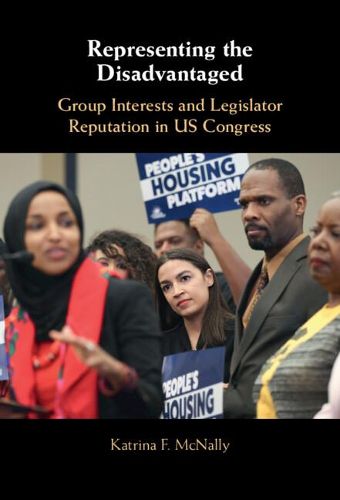Readings Newsletter
Become a Readings Member to make your shopping experience even easier.
Sign in or sign up for free!
You’re not far away from qualifying for FREE standard shipping within Australia
You’ve qualified for FREE standard shipping within Australia
The cart is loading…






The limited attention Congress gives to disadvantaged or marginalized groups, including Black Americans, LGBTQ, Latinx, women, and the poor, is well known and often remarked upon. This is the first full-length study to focus instead on those members who do advocate for these groups and when and why they do so. Katrina F. McNally develops the concept of an ‘advocacy window’ that develops as members of Congress consider incorporating disadvantaged group advocacy into their legislative portfolios. Using new data, she analyzes the impact of constituency factors, personal demographics, and institutional characteristics on the likelihood that members of the Senate or House of Representatives will decide to cultivate a reputation as a disadvantaged group advocate. By comparing legislative activism across different disadvantaged groups rather than focusing on one group in isolation, this study provides fresh insight into the tradeoffs members face as they consider taking up issues important to different groups.
$9.00 standard shipping within Australia
FREE standard shipping within Australia for orders over $100.00
Express & International shipping calculated at checkout
The limited attention Congress gives to disadvantaged or marginalized groups, including Black Americans, LGBTQ, Latinx, women, and the poor, is well known and often remarked upon. This is the first full-length study to focus instead on those members who do advocate for these groups and when and why they do so. Katrina F. McNally develops the concept of an ‘advocacy window’ that develops as members of Congress consider incorporating disadvantaged group advocacy into their legislative portfolios. Using new data, she analyzes the impact of constituency factors, personal demographics, and institutional characteristics on the likelihood that members of the Senate or House of Representatives will decide to cultivate a reputation as a disadvantaged group advocate. By comparing legislative activism across different disadvantaged groups rather than focusing on one group in isolation, this study provides fresh insight into the tradeoffs members face as they consider taking up issues important to different groups.